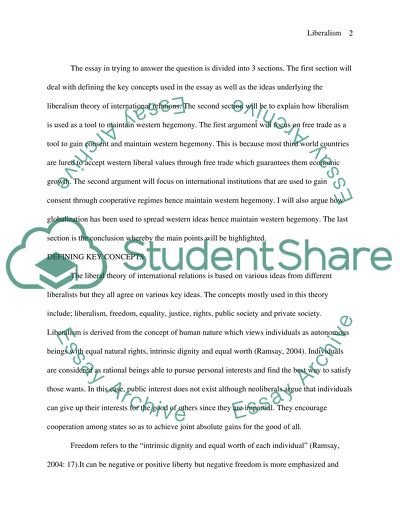Cite this document
(“Liberalism Is Simply Another Tool to Maintain Western Hegemony Essay”, n.d.)
Retrieved from https://studentshare.org/history/1394766-liberalism-is-simply-another-tool-to-maintain-western-hegemony-discuss
Retrieved from https://studentshare.org/history/1394766-liberalism-is-simply-another-tool-to-maintain-western-hegemony-discuss
(Liberalism Is Simply Another Tool to Maintain Western Hegemony Essay)
https://studentshare.org/history/1394766-liberalism-is-simply-another-tool-to-maintain-western-hegemony-discuss.
https://studentshare.org/history/1394766-liberalism-is-simply-another-tool-to-maintain-western-hegemony-discuss.
“Liberalism Is Simply Another Tool to Maintain Western Hegemony Essay”, n.d. https://studentshare.org/history/1394766-liberalism-is-simply-another-tool-to-maintain-western-hegemony-discuss.


